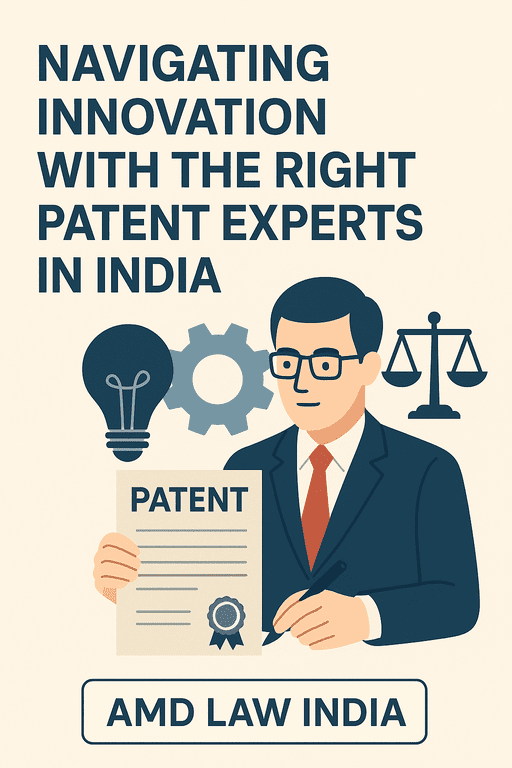In today’s knowledge-driven economy, intellectual property has become one of the most valuable assets for businesses and individual innovators. Protecting inventions through patents ensures that innovators enjoy exclusive rights over their creations while preventing unauthorized use or duplication. For those seeking to safeguard their ideas, finding the right patent lawyer in India is a crucial first step toward legal security and long-term commercial success.
Why Patents Are Essential in a Growing Economy
India is one of the world’s fastest-growing hubs for technology, pharmaceuticals, and manufacturing. With this rapid progress comes intense competition. In such a climate, patents play a decisive role in:
- Protecting unique inventions from being copied.
- Creating market advantage by granting exclusive rights to the inventor.
- Boosting investor confidence, since investors prefer businesses with protected IP.
- Generating revenue through licensing or sale of patented technology.
These benefits highlight why businesses—from startups to multinationals—prioritize a solid patent strategy.
Understanding the Patent Process in India
Patent registration in India involves multiple steps, including drafting, filing, examination, and prosecution. Each step requires precision, legal expertise, and strategic foresight:
- Patent Search – Before filing, it’s important to check whether an invention is new and non-obvious.
- Drafting the Application – This stage requires technical clarity and legal accuracy. The way claims are drafted can determine the strength of protection.
- Filing with the Indian Patent Office – Applications can be filed electronically or physically, and applicants may choose provisional or complete specifications.
- Examination & Office Actions – The patent office evaluates the application. Objections, if raised, must be addressed carefully.
- Grant & Publication – Once approved, the patent is published and remains valid for 20 years from the filing date, subject to renewals.
This process is not only technical but also time-sensitive. Missing deadlines or incorrectly framing claims can jeopardize protection. Hence, professional guidance is indispensable.
Choosing the Right Patent Expertise
For effective protection, it is vital to engage a patent law firm in India that offers end-to-end support—from searches and drafting to litigation if required. The right firm should bring together a blend of legal acumen, industry experience, and international exposure, especially since many businesses today operate across borders.
Factors to consider include:
- Experience in handling complex technologies (pharma, biotech, software, engineering).
- Track record in IP litigation and enforcement.
- Global alliances for clients with cross-border patent needs.
- Client-centric approach, ensuring solutions are tailored to business objectives.
- Patent Attorney vs. Patent Agent: Knowing the Difference
When navigating the patent landscape, innovators often confuse patent attorneys with agents. While both are qualified to file and prosecute patent applications before the patent office, only a patent attorney in India can represent clients in court and provide litigation support. This distinction is important for businesses expecting potential infringement challenges.
The Growing Demand for Patent Professionals
As India’s innovation ecosystem matures, demand for patent professionals is surging. With government initiatives supporting startups, a growing R&D culture, and international companies investing in India, patent filings are increasing annually. This makes the role of skilled patent experts more critical than ever.
Professional legal guidance ensures that patents are not only granted but also enforceable, commercially viable, and strategically aligned with a company’s business goals.
FAQs on Patents in India
Q1: How long does it take to get a patent in India?
It generally takes 3–5 years for a patent to be granted, depending on the complexity of the invention and responsiveness during examination. Expedited examination options are available for certain applicants.
Q2: Can software be patented in India?
Pure software cannot be patented. However, software with a technical application or innovative hardware integration may qualify under Indian patent law.
Q3: What is the cost of patent filing in India?
The cost varies depending on the type of application, number of claims, and whether professional assistance is involved. Government fees are lower for startups and individuals compared to large entities.
Q4: Can foreign applicants file patents in India?
Yes, foreign entities can file in India either directly or via the Patent Cooperation Treaty (PCT) route, provided they appoint a local agent or attorney.
Conclusion
Patents not only secure inventions but also build credibility, attract investors, and strengthen business strategies. In a fast-changing marketplace, the role of patent professionals is indispensable for innovators who aim to stay ahead of the curve. For businesses and individuals seeking to protect their innovations with confidence and legal precision, the right partner can make all the difference.
 WhatsApp Us Now
WhatsApp Us Now







